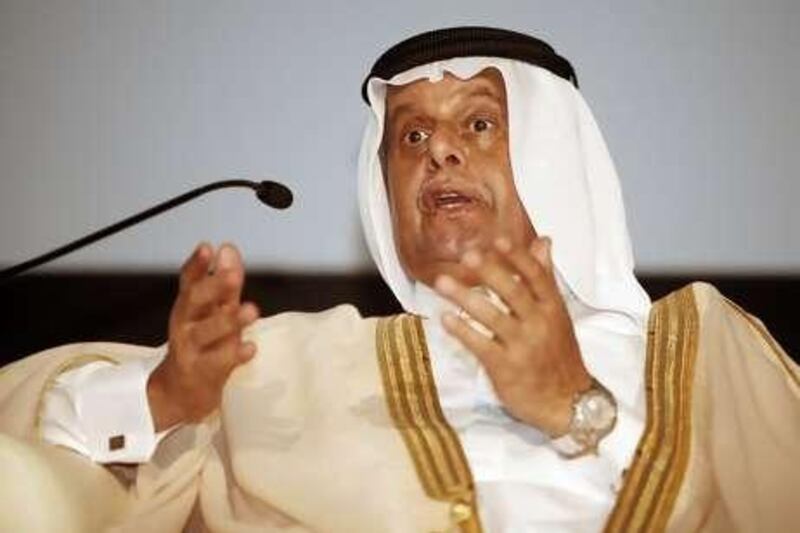Opec will cut oil production "for sure" when it meets in two weeks in Algeria, Qatar's energy minister said Wednesday, adding to a growing weight of opinion among group members that a reduction in output is necessary. Oil prices have slumped by US$100 a barrel since hitting a record $147.27 in July, and are now below the level needed for oil companies to invest in bringing new crude to market, Abdullah al Attiyah , the minister of energy and industry and deputy premier, told reporters at a conference in Dubai yesterday.
"For sure we will cut in Oran [Algeria], but we will discuss the real numbers," he said. "We have to see the numbers, the demand and the supply, the glut." Opec met last weekend in Cairo, but postponed a decision on production cuts. The most influential energy minister within the organisation, Ali al Naimi of Saudi Arabia, said last week that Opec would not need to make a further cut in oil supply when it meets in Algeria if producers comply with previous curbs and fuel stocks decline.
Shipping data indicate that Iran and Venezuela have not fully implemented their agreed supply cuts. Mr al Attiyah said the group did not yet know by how much it needed to trim supplies, but indicated that prices needed to rebound above $70 a barrel for oil companies to have an incentive to explore for oil, or produce more from existing fields. He said $70 "is the minimum price with which we can invest in the future. Today there is no cheap oil".
Without an increase in the price, he warned the world would face a shortage of oil supplies in the near future. "We will see many projects postponed. When the economic crisis is over, and the demand starts again, the world will face a big shortage of supply." Mr al Attiyah's comments follow suggestions by Saudi Arabia, the group's most influential member, that prices are currently below the marginal cost of production, the cost for producers of extracting the most costly barrels.
Meanwhile, lower prices are already biting into the government spending of oil exporting nations. Oman and Iran are planning next year's budgets based on oil at $45 a barrel, a sharp reduction from this year. The revisions are likely to mean that both countries will either run deficits next year or will have to slash government spending to balance their budgets. The International Monetary Fund (IMF) has estimated Oman's break-even oil price at $77 for the current fiscal year, and Iran's at $90, significantly higher than for most other Gulf states.
Mahmoud Ahmedinejad, the Iranian president, yesterday publicly acknowledged that low oil prices were taking a serious toll on development projects. "Because of the world recession, oil prices will be declining for some time. Suppose we plan to base next year's budget on $30 per barrel of oil; we have to leave a major part of our projects behind," the state news agency, IRNA, quoted him as saying. Only last month, Mr Ahmedinejad declared that the Iranian economy would be stable if oil sank to $5 a barrel.
In a report on the Middle East in October, the IMF calculated that Saudi Arabia would need an average oil price of $49 a barrel to balance its budget for the 2008-2009 fiscal year ending on March 31. It estimated $47 a barrel as the average fiscal break-even price for the GCC as a whole. * with Associated Press cstanton@thenational.ae additional reporting by Tamsin Carlisle





